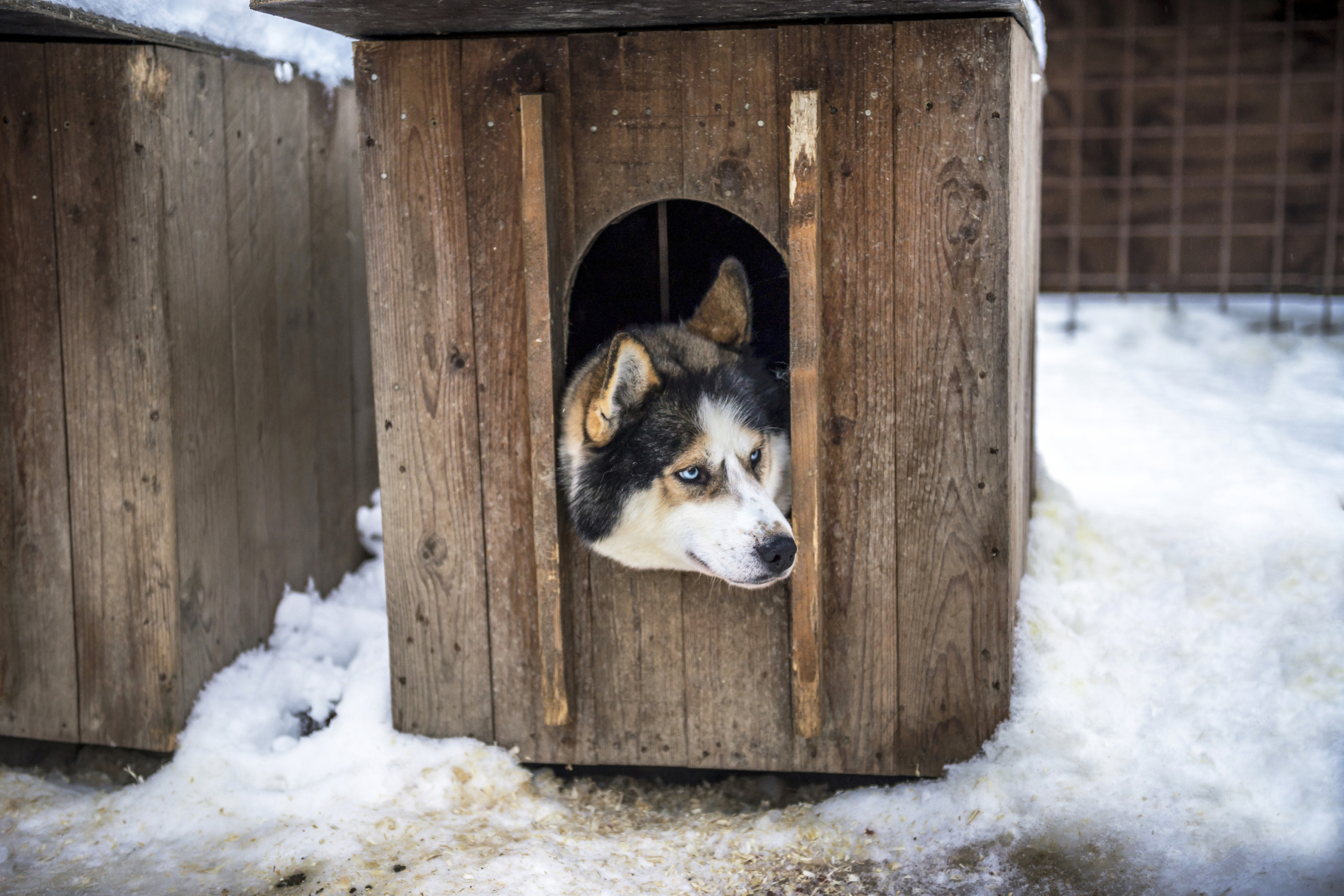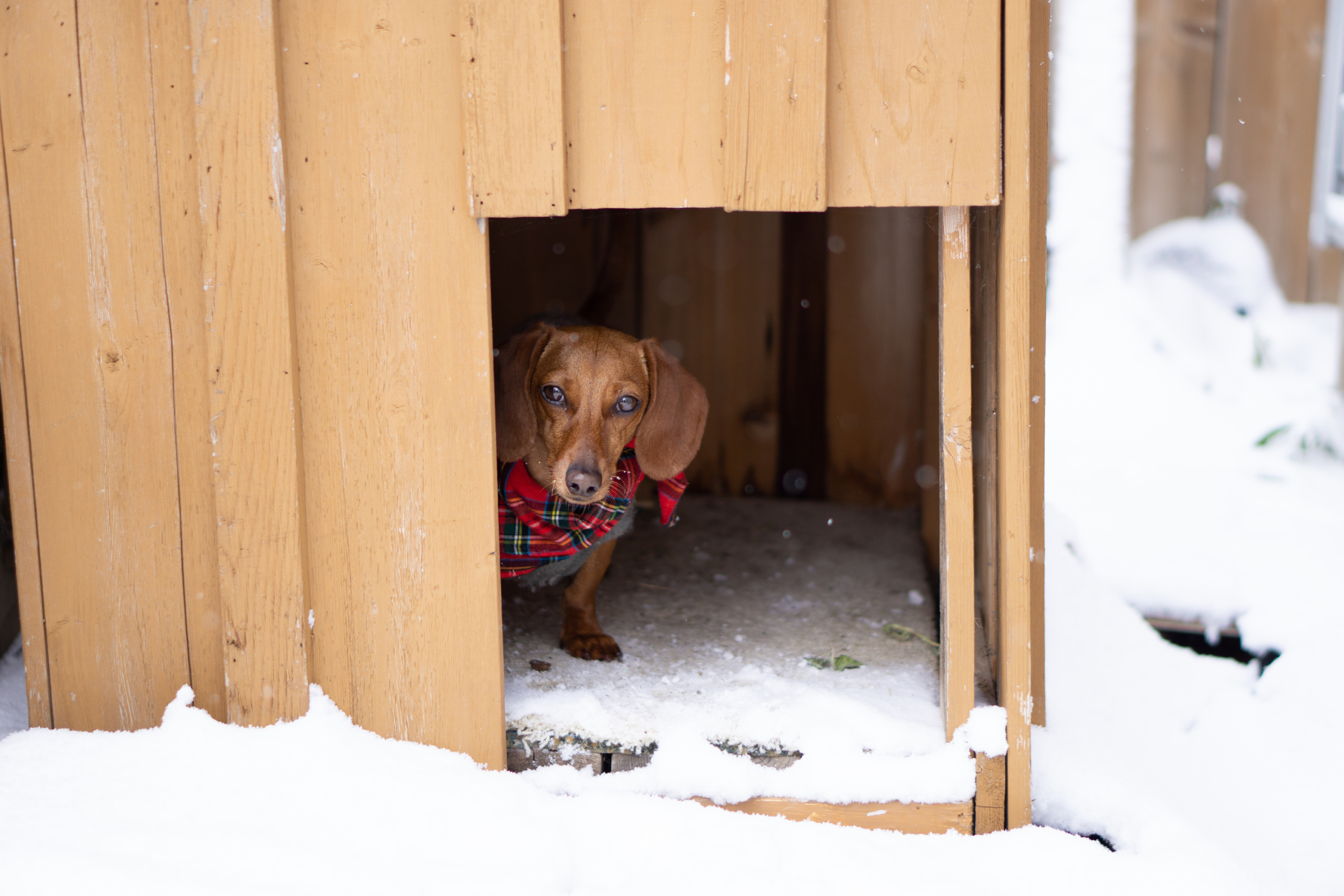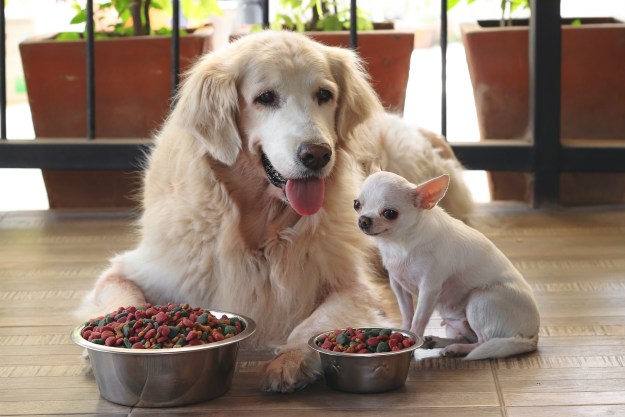It’s true that your dog’s wild cousins spend the winter frolicking and sleeping outdoors, but that doesn’t mean your pooch likes to lounge outside in the cold without a heat source. Our furry friends are slightly less insulated than their undomesticated counterparts and require a little extra help to stay warm. If your pup relishes his snow time or you simply need him to stay outside during the day, you can give him the shelter he needs by heating his doghouse.

Does my dog need a heated house?
Dogs like to have a designated space, and giving them an outdoor home helps keep them feeling safe and secure, especially while you’re away. In the winter, your dog’s den may need a little more attention to help keep him happy outside.
If your pet spends long chunks of the day outdoors or you live in a cold climate, you should look into heating his existing house or purchasing a new one for this purpose. Breeds from warm parts of the world or those with short hair may be especially susceptible to cold and will need an extra-warm setup. When you glam up your pet house, you protect him not only from cold but also from elements like ice and snow.
Consult your vet if you aren’t sure how long Fido should be in the cold and don’t leave dogs out alone for long periods in extreme temperatures, even with a heated house.
How can I warm up his doghouse?
Just like a human home, a properly heated dog home needs insulation. Some doghouses already come with this built in, but if not, buy materials like fabric or foam to line the inside of his house. If your dog is prone to shredding or chewing, you will need to find something he won’t want to gnaw or look at covering the insulation with plastic. You can also winterize the exterior of the house with siding or paint it a dark color. Make sure to fill in any gaps or holes as well to prevent cold from getting through. A dog flap, like the one you might have in your home, helps keep heat in and the wind out.
In addition to cloth for warmth, your pooch will enjoy curling up in a cozy blanket. Include a dog bed or other comfy floor covering for him like a carpet remnant. If you’re finding the floor to be particularly chilly, you can also look at raising the doghouse higher and adding stairs or a ramp, which may help conserve heat. Small breeds might need additional protection such as a sweater or jacket to help keep their little bodies warm.

Can I add a heat source to my doghouse?
Now that you have a way to maintain the temperature inside, you might decide to add more heat. Not all dogs will generate enough warmth even in a well-insulated little house. One solution is to include a heating pad for doghouses or a small heater. These come in all sizes and varieties, depending on the design of your house and your animal’s preferences. Many heating pads can go on the floor and don’t require electricity. Your pooch will surely love to lie down on his new pad when it’s especially nippy. Make sure you purchase a heater or pad specifically designed for pets with all the built-in safety features your pup will need, like a chew-proof cord.
If your dog doesn’t yet have a den and you’re in the market, you can also buy heated doghouses. These come with heating lamps or pads already built in, along with extensive insulation. Designs vary, but most require an electricity source, so think about your setup before you purchase.
With your pet home renovation project complete, make a thermometer your last purchase. Some high-end ones can even communicate with your phone and keep you up to date on the conditions inside the doghouse. This way, you’ll always know what temperature it is in Fido’s new home. Your pet may be dreaming of summer from within his den, but at least he’ll be snuggled up in his new warm house.
Editors' Recommendations
- 5 surefire ways to keep your dog off your bed and get a good night’s sleep
- How to stop a dog from peeing in their crate for good in 5 easy-to-follow steps
- Why does my dog have a bald patch on their tail? Here are the answers you need
- Looking for signs your dog has ticks? These telltale symptoms mean you have a flea or tick problem
- My dog is shaking and acting weird – should I worry?




